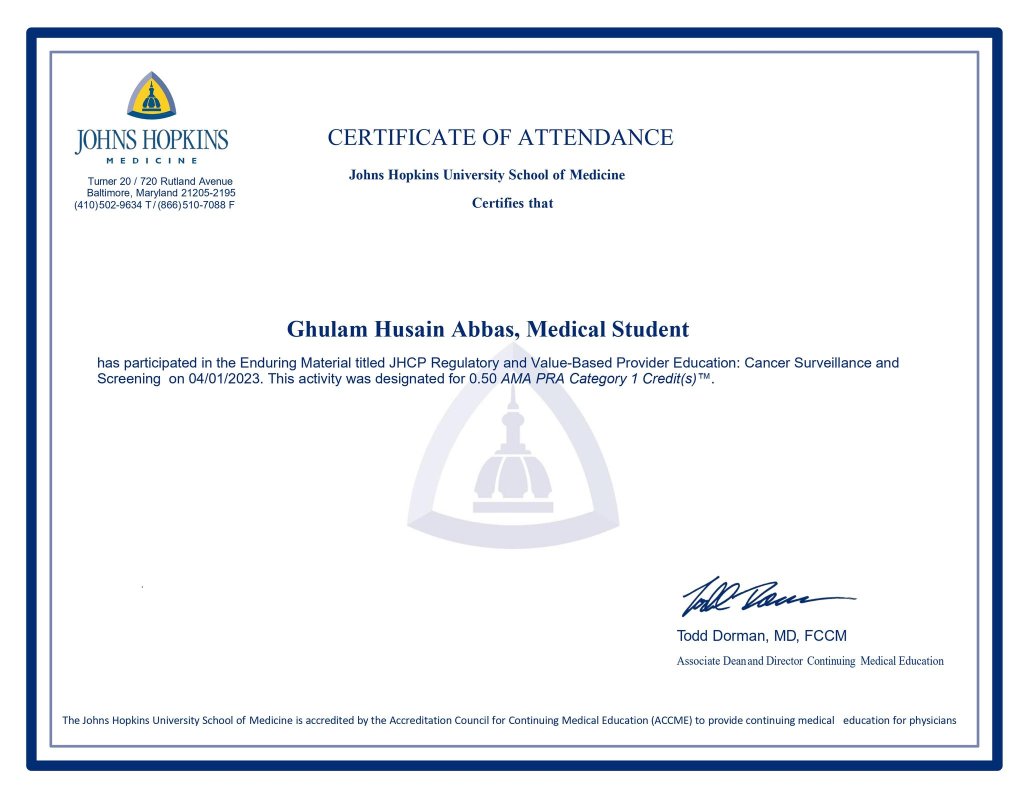The publication of scientific articles by students plays a key role in their professional development and scientific education, especially when it comes to artificial intelligence (AI) technologies and their application in medicine. This process not only allows students to expand their knowledge, but also to participate in cutting-edge research, contributing to the development of modern medicine and improving the quality of healthcare.
Ghulam Husain Abbas, a 4th-year student of the Faculty of Medicine of Ala-Too International University (AIU) from South Africa, successfully published his scientific article entitled “AI-based predictive modeling: applications in cardiology” in the International Journal of Surgery Global Health. (The article can be found here)

The International Journal of Surgery Global Health is a scientific and medical publication indexed in SCOPUS and publishes original research papers, reviews and articles on surgical techniques, new technologies in medicine and global public health issues. Ghulam Husain Abbas chose this topic because of its potential to revolutionize the approach to diagnosis and treatment in cardiovascular medicine. In his research, he has used a variety of AI techniques, including machine learning algorithms, deep learning techniques, and data analysis tools to develop predictive models based on current cardiac datasets. The author shared the results and effectiveness of his research:
The main results of my study have confirmed the effectiveness of AI-based predictive modeling in accurately diagnosing heart disease and predicting outcomes before they occur or symptoms manifest. This technology allows us to predict various heart diseases by analyzing the physiology of the body in a short period of time, which helps doctors more accurately diagnose and treat diseases. The use of predictive models in cardiology has enormous potential to improve patient care. It helps in the early detection of cardiovascular diseases, the preparation of individual treatment plans and improved management of therapy results.
I see that AI technologies and algorithms are playing an important role in cardiology. They contribute to progress in risk assessment, disease prevention and the creation of personalized medicine that meets the individual needs of patients. One of the main challenges I faced in the process of researching and writing the article was understanding the complexities of AI algorithms, as well as ensuring the accuracy and reliability of predictive models. During the rigorous research and writing process, I received valuable guidance and support from my professors, who provided information, feedback, and most importantly, constantly supported me throughout the project. Studying at the AIU’s Faculty of Medicine has significantly influenced my development as a future doctor. The university, focused on an international perspective, expanded my understanding of medicine, and the high quality of education provided a solid foundation of knowledge and practice. и практики.
This publication is becoming a significant milestone in my education and career, as I want to devote my whole life to scientific research. My ultimate goal is to make a significant contribution to the field of medicine and maybe even receive a Nobel Prize. My advice to students interested in AI and medical research is to stay curious and open to new ideas. It is important to maintain interdisciplinary cooperation, keep abreast of the latest technologies and not be afraid to take on challenges, as they often stimulate breakthroughs and innovations.
Ghulam Husain Abbas

Ghulam Husain is currently undergoing a clinical research internship at Rutgers Robert Wood Johnson Medical School in the USA, which is an online-offline hybrid system. It is known for its advanced research equipment, ranked second in the United States and fourth in the world. Obtaining this position was the result of an extremely competitive selection process, during which more than 250 doctors and medical students from all over the world applied, and the AIU student was among the 20 selected candidates. In addition, he holds several international certificates. In the future, he aims to explore innovative approaches to improve diagnostic accuracy, treatment effectiveness, and patient care outcomes using AI and nanomedicine technologies.
The future doctor does not stop there and enthusiastically engages in work on other projects. He has two articles on AI and nanomedicine, as well as a review article, which are currently being reviewed by The Lancet Journal and Annals of Medicine and Surgery.





